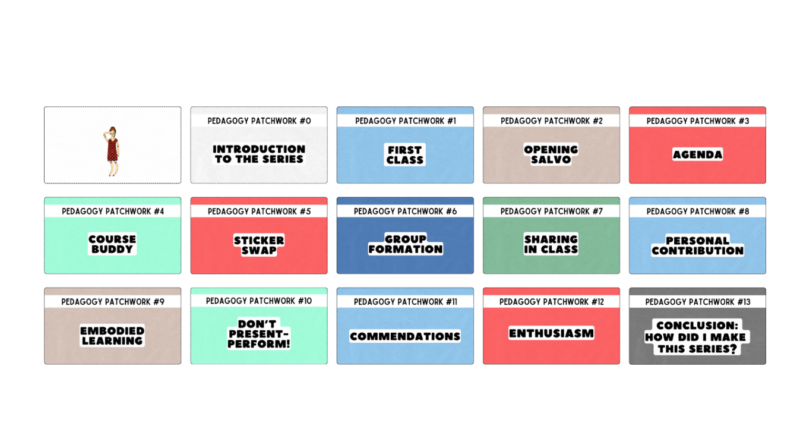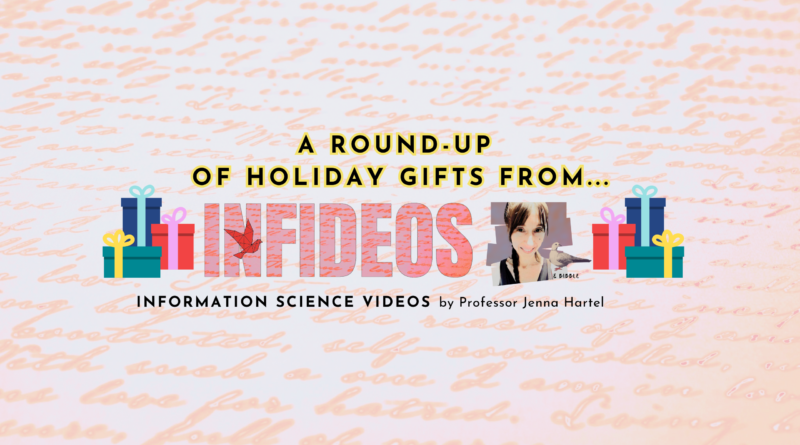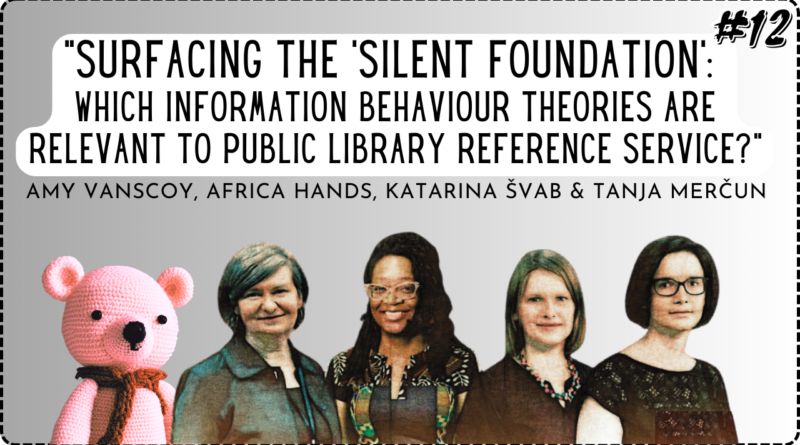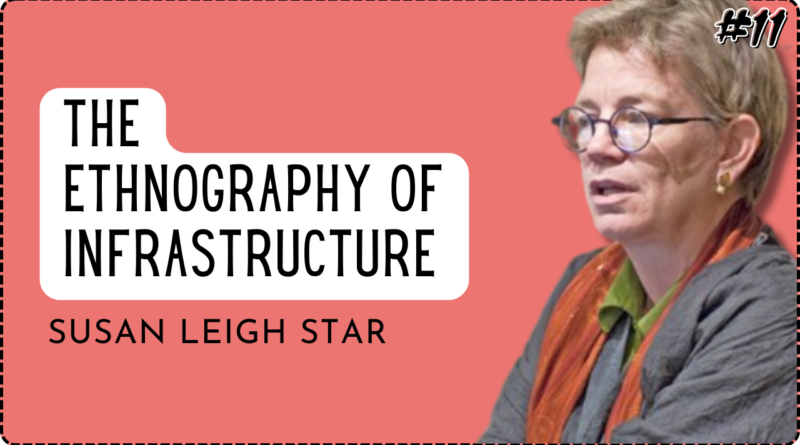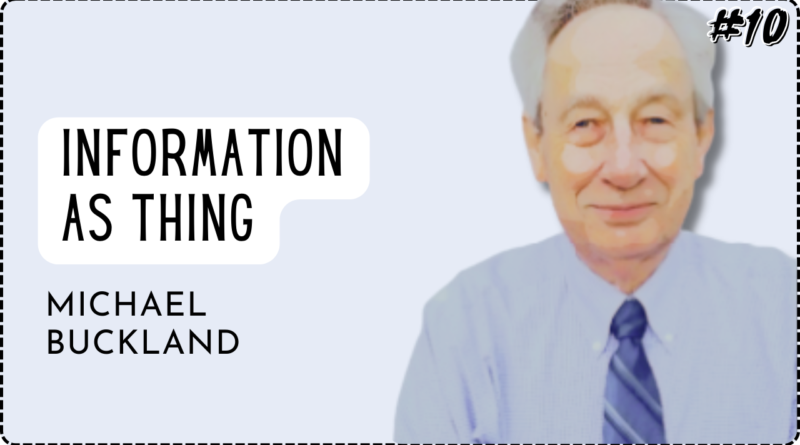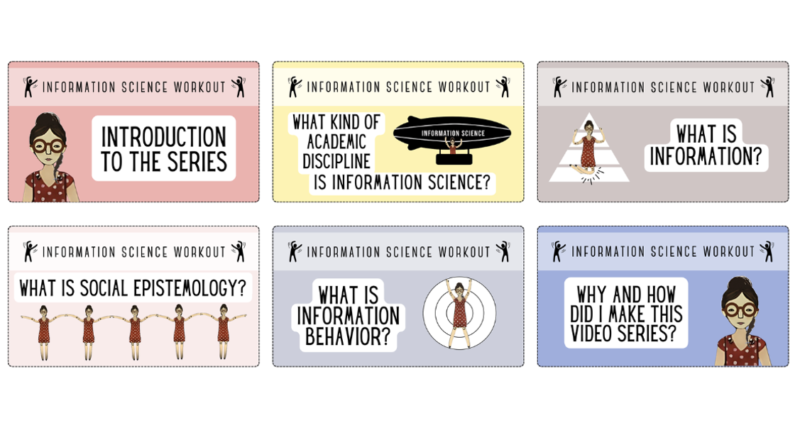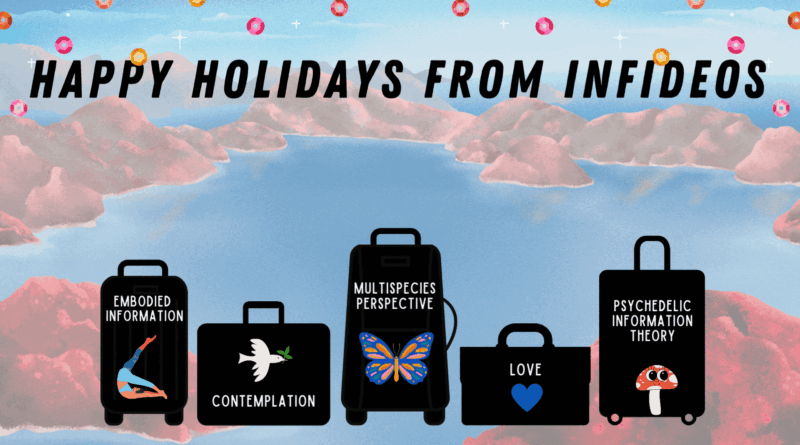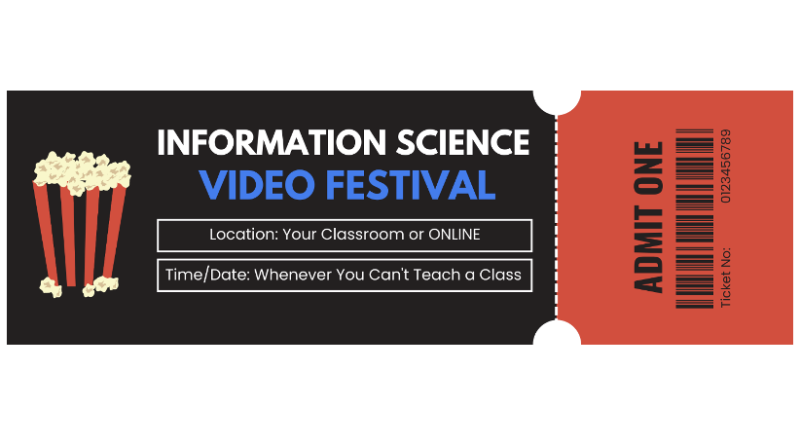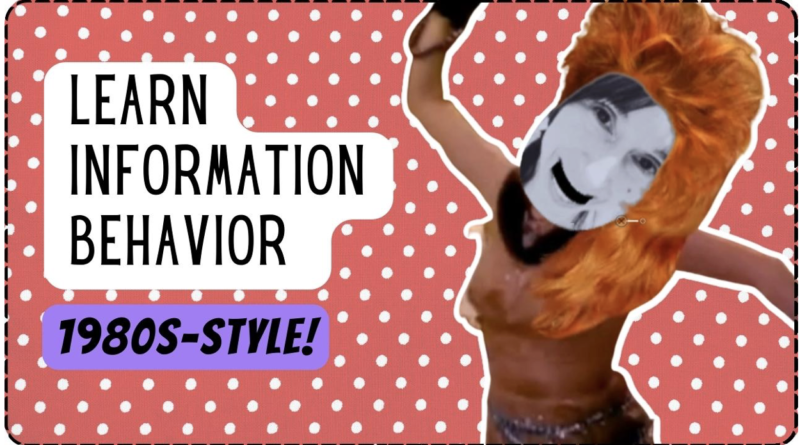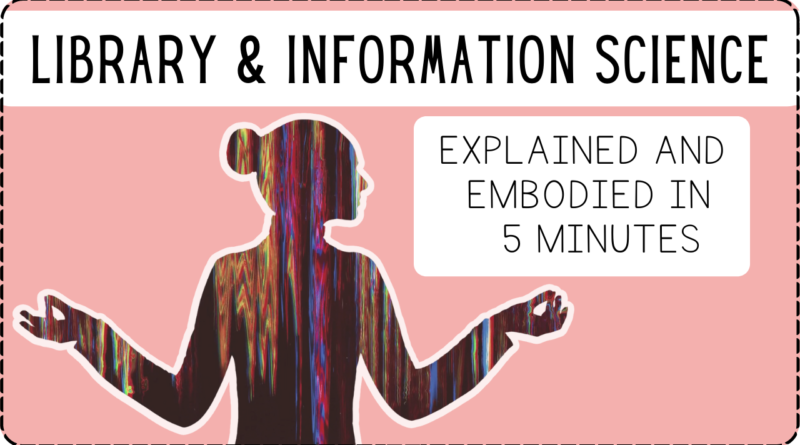For 2023, a new video series, An Archipelago of Information Science. The 7-episode playlist is on YouTube at INFIDEOS. The series explores ideas on the frontier of Information Science. Altogether, the collection enacts the metaphor of an island chain—an archipelago—of incipient concepts existing still somewhat offshore, but within sight, of the Information Science mainland. (The mainland is our literature where many well-established tenets reside.) Viewers are taken on an archipelago adventure, following a tour guide who is my own seagull avatar. There are several destinations, namely the islands of: Embodied Information, Contemplation, a Multispecies Perspective, Love, and Psychedelic Information Theory. The video thumbnail for these “islands” are shown below. Each stop on the journey is a expeditious primer, and the featured concept is defined and situated within the history and literature of Information Science. The series is ideal for anyone curious about emergent concepts and new directions in Information Science.
Read More



